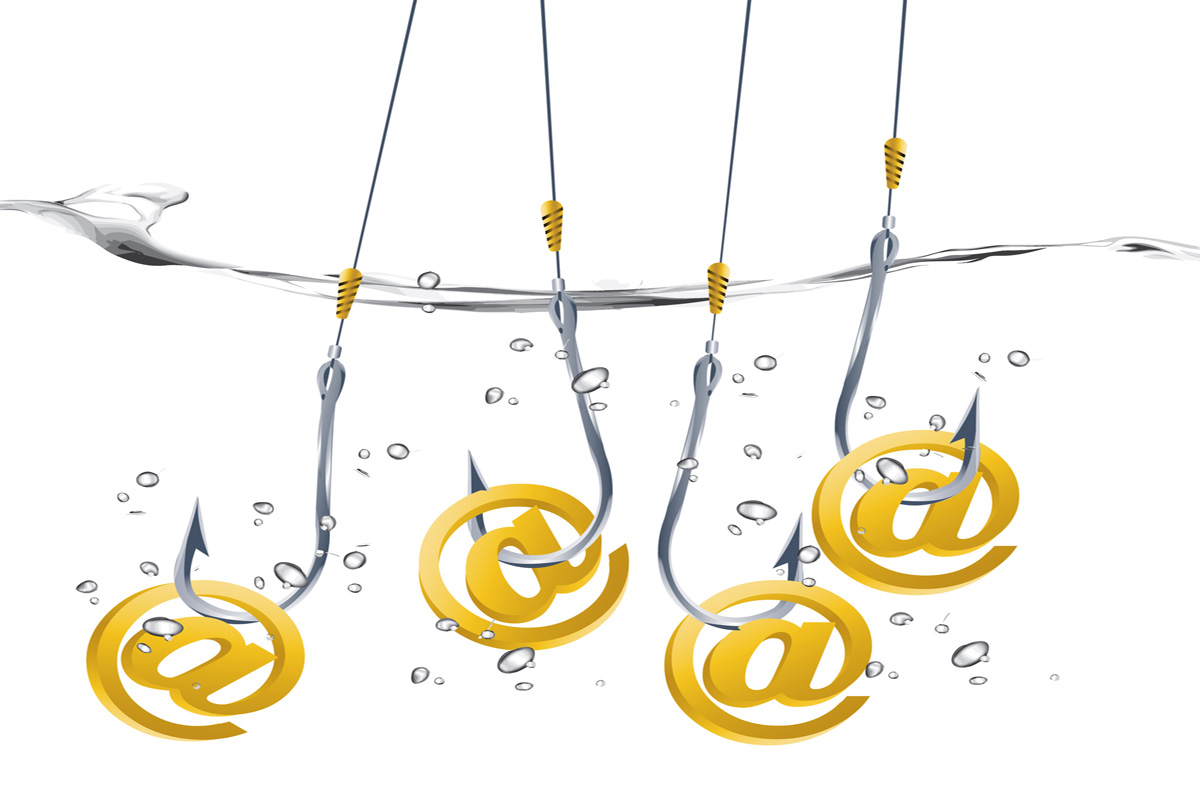My email address is [CENSORED]
In this week's column, Davey Winder looks at whether businesses should keep email addresses secret.


How public should your email be? That's a question many of us do not really think about, especially within the world of business.
After all, your email address is really no different to your street address, is it? The closest dictionary to hand on the iPad I am writing this on (WordWeb if you are interested in such things) confirms my understanding that an address is defined as "the place where a person or organisation can be found or communicated with," be that a geographic location or something non-corporeal such as a web or mail server that exists in the cloud.
The point being that an address, be it office, web or email, exists to enable your customers to contact you. So why is one security vendor warning business users that revealing their email addresses is a security risk?
Now that, it seems to me, is something on a backwards approach to the phishing problem.
Here's what Websense Security Labs has to say on the matter after conducting research into the number of email addresses appearing on Twitter: "Thousands of businesses and consumers are putting themselves at risk each day by publicly revealing their email addresses on Twitter." The company goes on to argue that because those addresses are "connected with their inboxes, social media identities and bank accounts" it leaves business users exposed to "advanced social spear phishing attacks."
Carl Leonard from the Websense Security Labs goes as far as to warn businesses using social media to communicate with customers that they "need to consider ways to ensure that employees are protected from these new threats." Furthermore, employers should "re-evaluate acceptable use policies to discourage staff from sharing email addresses on Twitter." Now that, it seems to me, is something on a backwards approach to the phishing problem.
To suggest that acceptable use policies need updating to make placing already-public email addresses on social media some kind of hanging offence is, frankly, daft. The warning that cyber criminals could use the addresses, together with associated information harvestable from public services, to launch spear phishing attacks is perfectly valid, but the conclusion is all wrong. What business should be doing, I would suggest, is ensure employees are sufficiently aware of the risk of clicking on unsolicited links - an action that has led to many a successful phishing attack.
Get the ITPro daily newsletter
Sign up today and you will receive a free copy of our Future Focus 2025 report - the leading guidance on AI, cybersecurity and other IT challenges as per 700+ senior executives
Davey is a three-decade veteran technology journalist specialising in cybersecurity and privacy matters and has been a Contributing Editor at PC Pro magazine since the first issue was published in 1994. He's also a Senior Contributor at Forbes, and co-founder of the Forbes Straight Talking Cyber video project that won the ‘Most Educational Content’ category at the 2021 European Cybersecurity Blogger Awards.
Davey has also picked up many other awards over the years, including the Security Serious ‘Cyber Writer of the Year’ title in 2020. As well as being the only three-time winner of the BT Security Journalist of the Year award (2006, 2008, 2010) Davey was also named BT Technology Journalist of the Year in 1996 for a forward-looking feature in PC Pro Magazine called ‘Threats to the Internet.’ In 2011 he was honoured with the Enigma Award for a lifetime contribution to IT security journalism which, thankfully, didn’t end his ongoing contributions - or his life for that matter.
You can follow Davey on Twitter @happygeek, or email him at davey@happygeek.com.
-
 Meta just revived plans to train AI models using European user data
Meta just revived plans to train AI models using European user dataNews Meta has confirmed plans to train AI models using European users’ public content and conversations with its Meta AI chatbot.
By Nicole Kobie
-
 AI is helping bad bots take over the internet
AI is helping bad bots take over the internetNews Automated bot traffic has surpassed human activity for the first time in a decade, according to Imperva
By Bobby Hellard
-
 Capita tells pension provider to 'assume' nearly 500,000 customers' data stolen
Capita tells pension provider to 'assume' nearly 500,000 customers' data stolenCapita told the pension provider to “work on the assumption” that data had been stolen
By Ross Kelly
-
 Gumtree site code made personal data of users and sellers publicly accessible
Gumtree site code made personal data of users and sellers publicly accessibleNews Anyone could scan the website's HTML code to reveal personal information belonging to users of the popular second-hand classified adverts website
By Connor Jones
-
 Pizza chain exposed 100,000 employees' Social Security numbers
Pizza chain exposed 100,000 employees' Social Security numbersNews Former and current staff at California Pizza Kitchen potentially burned by hackers
By Danny Bradbury
-
 83% of critical infrastructure companies have experienced breaches in the last three years
83% of critical infrastructure companies have experienced breaches in the last three yearsNews Survey finds security practices are weak if not non-existent in critical firms
By Rene Millman
-
 Identity Automation launches credential breach monitoring service
Identity Automation launches credential breach monitoring serviceNews New monitoring solution adds to the firm’s flagship RapidIdentity platform
By Praharsha Anand
-
 Neiman Marcus data breach hits 4.6 million customers
Neiman Marcus data breach hits 4.6 million customersNews The breach took place last year, but details have only now come to light
By Rene Millman
-
 Indiana notifies 750,000 after COVID-19 tracing data accessed
Indiana notifies 750,000 after COVID-19 tracing data accessedNews The state is following up to ensure no information was transferred to bad actors
By Rene Millman
-
 Pearson fined $1 million for downplaying severity of 2018 breach
Pearson fined $1 million for downplaying severity of 2018 breachNews The SEC found the London-based firm made “misleading statements and omissions” about the intrusion
By Rene Millman